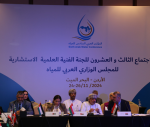You are here
Crown Prince and tech in unmaking inequalities
Jul 29,2018 - Last updated at Jul 29,2018
Inequalities are deeply seated feeders of publically expressed and hidden societal and individual grievances. The growing sense of inequality among citizens of Jordan is alarming. It has increased significantly over the past 20 years. The percentage reporting “equality does not exist in Jordan” increased from 13 per cent in 1999 to 30 per cent in 2018, and the percentage of those reporting “equality exists to a great extent” decreased from 20 per cent in 1999 to 7 per cent in 2018 (CSS Democracy and NAMASIS surveys respectively). The making of these feelings of inequalities has taken decades. Unmaking them will probably take decades too and we ought to be more reasonable in trying to solve the problem using different methods than those used to create it.
The sense of inequality is significantly higher than sense of injustice according to the same empirical sources. However, sense of inequality among citizens in marginalised areas is not only significantly higher than other places but also more alarming: 48 per cent in the south (Karak, Tafileh, Maan and Aqaba), 30 per cent in the north (Irbid, Ajloun Jerash and Mafraq) and 27 per cent in the centre (Amman, Madaba, Balqa, and Zarqa) reported that “equality does not exist” in Jordan. When comparing urban areas to marginalised peripheries, 26 per cent in both Amman and Zarqa say equality does not exist compared to 30 per cent in Irbid and 35 per cent in the 9 remaining governorates. The average of those 9 governorates is similar to that found in Maan in 2003 when 34 per cent said equality does not exist in Jordan.
If anything, policy planners, makers and implementers should all be concerned about what may lie ahead. These expressions of inequality have been communicated sporadically by protesters since 1989, 1996, 2002-2003 and more frequently but not systematically, since 2010. In Tafileh, Karak, Thiban, Jerash, Mafraq and Maan alike, expressions have surfaced in small number of protests and protesters. Despite their relatively small size and frequency, their message has been consistent: We are suffering and the government is not doing enough. These feelings have been further fueled by the existing narratives of corruption. According to most recent NAMASIS survey, over 80 per cent attribute government inability to deliver services to corruption and government indifference, while a small minority attributes it to lack of resources. It is not farfetched to find these attitudes more prevalent among citizens in marginalised areas.
Given these deeply-rooted inequalities, imbalances in state-society relations may surface in a more frequent and systematic manner whether as protest movement, and/or digital venting or further distance from state institutions. Although Jordanians’ trust in security institutions’ ability to preserve stability is globally recognised and unmatched regionally, long-term stability is in the hands of an enabling state and those citizens, who are able to be good and law abiding citizens. State society relations in this formula ought to guard for a more robust system of checks and balances to preserve trust in institutions and deliver public good.
The recent corruption scandals and increasing sense of injustice and inequality remind us all of Lord Acton’s famous quote “power corrupts and absolute power corrupts absolutely”. The local version of Neoliberalism and its somewhat society-blind policies have produced hybrid forms of deformed economic policies that produced a variety of economic feudalism and financial monopoly while disregarding economic justice and equality in state-society relations. Neoliberals purposefully reengineered the state to concentrate political and economic power resources in the hands of the few leaving increasingly more people marginalised, disenchanted and disenfranchised. Granted, it is impossible to enforce complete equality. But it is reasonable to equip citizens with the tools necessary to fulfill their potentials. Then it is up to them to take advantage of these opportunities. If and when Jordan realises this goal, the state will not be held either morally or politically accountable for claims of entitlement but will be held to account if it does not sufficiently enable its citizens to access opportunities equally and fairly.
Obviating further dilapidation of the decades’ long cultivated state-society relationship necessitates perceptive public policy planning and execution. The political and constitutional relationship between the state and society has been mutually-dependent since the inception of the state. It has gone through phases of mutual adaptation to the changing role of the state and state responses to its routine, and predictable challenges as well as existential threats, especially in the period 1967-1973. These adaptation strategies were managed through public spending on security, development of health, education and infrastructure. With coercive increases of the population through refugees and illegal immigration, these services, except security, are no longer paying off as they used to be. Education’s output is producing soaring unemployment and poverty rates, and the public health sector is not in an envious shape. These constitute a legitimate cause of concern.
Therefore, and in order to create skill-driven economy for the most marginalised in the soft-belly of the south and as part of state-society adaptation strategies, creating a new tech industry through redesigning education there as part of a national plan in the south gearing all students from preschool time towards skills in new technology. Some will be global entrepreneurs, others will be engineers, a third tier will be technicians, and fourth tier provide supportive services turning them from state-dependent to globally competitive and demanded tech specialists. In other words, there is a path toward a peaceful and prosperous future for Jordan, but realising this vision requires meaningful revisions of public polices to promote equality and justice for all individual citizens not for the few.
His Royal Highness Crown Prince Hussein’s speech in Maan a few weeks ago spoke to the need and the future. Government plans must speak to the action in between.
The writer is chairman of NAMA Strategic Intelligence Solutions













